Fr. Simeon Lourdel Mapeera
Mapeera was born on 20th December 1853 at Dury France and he came from a Christian family and this made him to want to be a missionary from childhood. He joined the minor seminary of Arras in October 1861.
Due to his conduct of not submitting to the rules of the seminary, he was asked to leave after 5 years. He then went to complete his studies in college at St. Omer and Montreuil. While there he became serious and re-applied to join the white fathers where he showed maturity to be a novice at Algiers. He then took his missionary Oath on the 2nd February 1875 and then started theological studies ad as well studied Arabic during his seminary training.
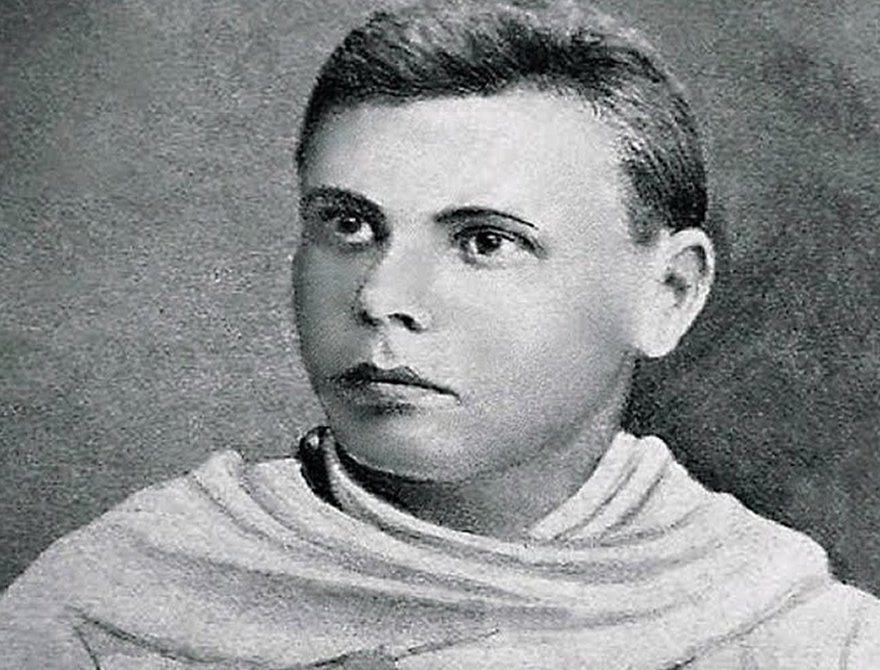
On 2nd April 1877, he was ordained as a priest and then his first appointment was at the minor seminary of Algiers as a teacher. In October, he received a new appointment to go to the Sahara where Arabic was the major language. To his disappointment, he was sent on a mission where 3 white fathers were massacred in January 1876.
LOURDEL MAPEERA JOURNEY
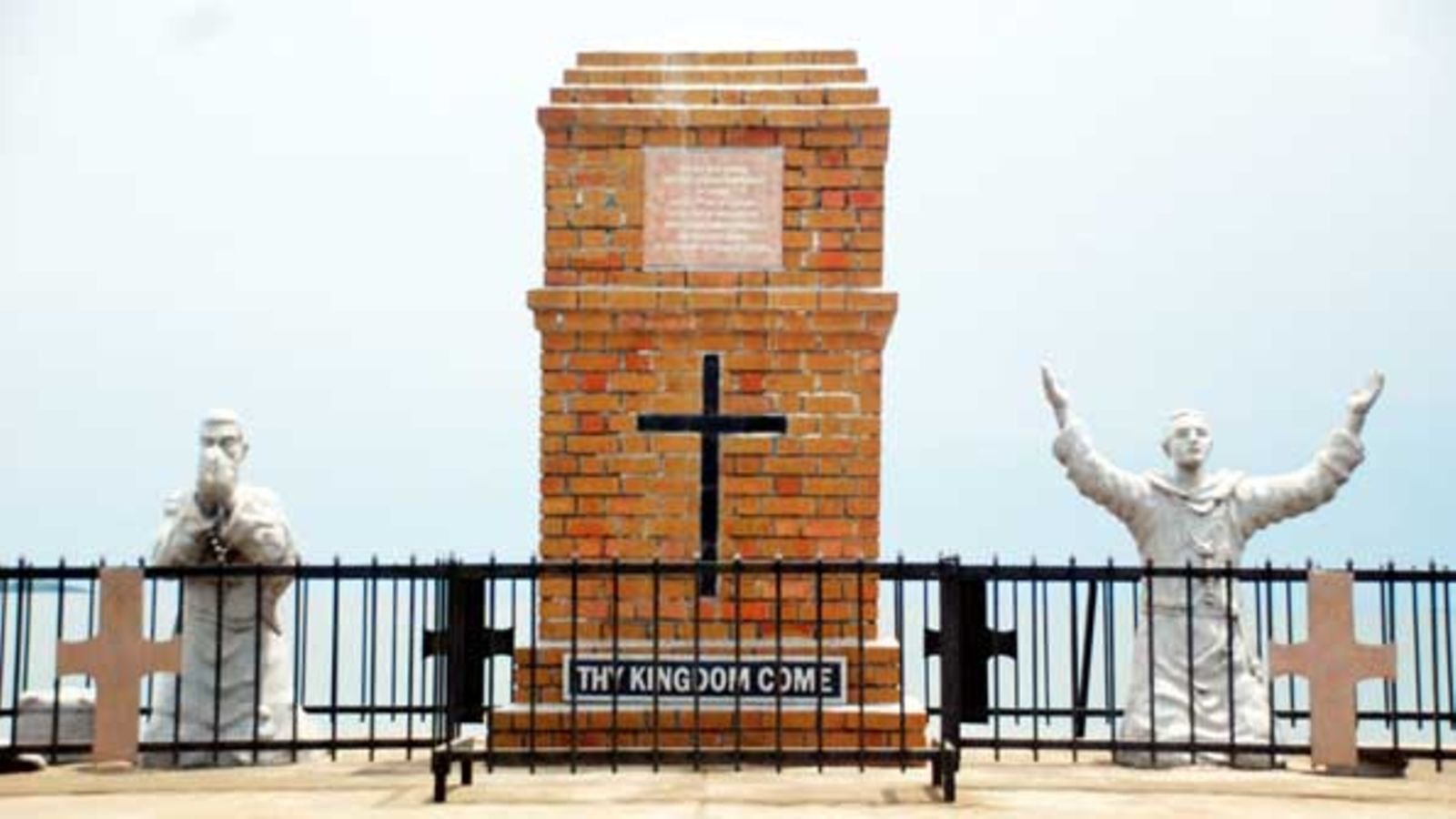
Lourdel’s journey to Nyanza province with his fellow missionaries wasn’t easy. When they reached kageye, he volunteered at once to go to Muteesa‘s court with the intention of exploring the situation in Buganda. He went with Bro. Amans on the request of Fr. Livinhac who was the leader of the caravan. When they withdrew from Buganda due to insecurity on 8th nov 1882, Lourdel went to start an orphanage centre in Tabora. After that he fell sick that he went to Bukumbi in the mission to find Fr. Livinhac who decided to send him back to Europe.
He had to leave for Tabora on 20th July 1883. Due to his illness, he was offered a walking stick which currently is kept at Lubaga. It was first kept in France but later it was offered to archbishop Emmanuel Nsubuga of Kampala in 1972 together wih Fr. Lourdel`s crucifix. Both of the objects are preserved with respect at Lubaga.
A few weeks in Tabora, Lourdel health improved and he was able to resume work as usual. He was appointed in the Ukene region where he arrived in April 1884. When kabaka Mwanga ascended to the throne, he called the missionaries back as well as Lourdel since they had been expelled in 1888. It was that time when Lourdel opened a mission at Nyegezi with Bro. Amans. He soon returned to Uganda in October 1889 to re-open a mission at Rubaga in February.
Father Lourdel was known for his deep spirituality, compassion, and dedication to serving the people of Uganda. He worked tirelessly to build relationships with the local population, learning their language and customs in order to better communicate the teachings of the Church.
THE DEATH OF FR. SIMON LOURDEL MAPEERA
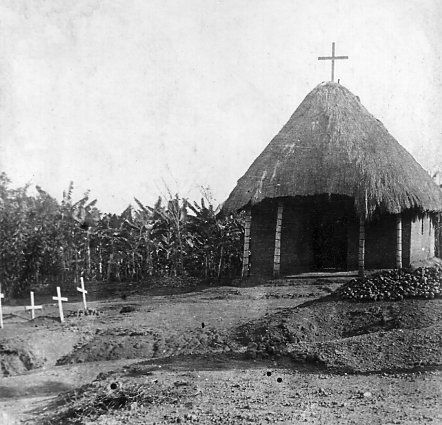
Father Lourdel was known for his deep spirituality, compassion, and dedication to serving the people of Uganda. He worked tirelessly to build relationships with the local population, learning their language and customs in order to better communicate the teachings of the Church.
On 8th may he got struck by fever which seemed to be worse and on the next day he told his confreres that he was prepared for death. Mass was celebrated in his hut where he received holy communion. He constantly prayed to God and to our lady as well requested to be laid on ground saying he was not worth dying on a caravan bed. In the evening, he received the sacrament of the anointing of the sick at his own request.
On Monday morning of 12th may 1890, Mapeera was in a cold sweat “I am going to die today ’’ that was his statement. He generously offered his life in sacrifice for the salvation of souls. His confreres joined him to say prayers of the dying from 10am onwards. Kabaka Mwanga arrived on request at the catholic mission. Fr. Simeon Lourdel died in the presence of kabaka Mwanga and he was buried close to the chapel. Kabaka Mwanga and his chiefs brought bark cloth ’amabugo’ as the Buganda culture was in order to console the missionaries.
But when the mission was moved to the top of Lubaga hill on 2nd November 1901. The remains of Mapeera and Fr. Denoit were transferred to the chapel built by Christians in the cemetery situated behind the present Lubaga cathedral. The ceremony was presided over by Bishop Henry Streicher assisted by twelve missionaries at a Requiem mass.
According to Fr. Charles Ssengendo the archdiocesan Archivist, the remains of Fr. Simeon Lourdel were again transferred from Lubaga cemetery to cardinal’s residence by the late cardinal Nsubuga where the former Archbishop of Kampala his Grace Dr. Cyprian Kizito Lwanga stayed. Currently they have been put in Nabulagala chapel together with the other four first missionaries to Uganda and thus one of the reasons to the beatification process of Fr. Lourdel started.
FR. SIMON LOURDEL MAPEERA HISTORY
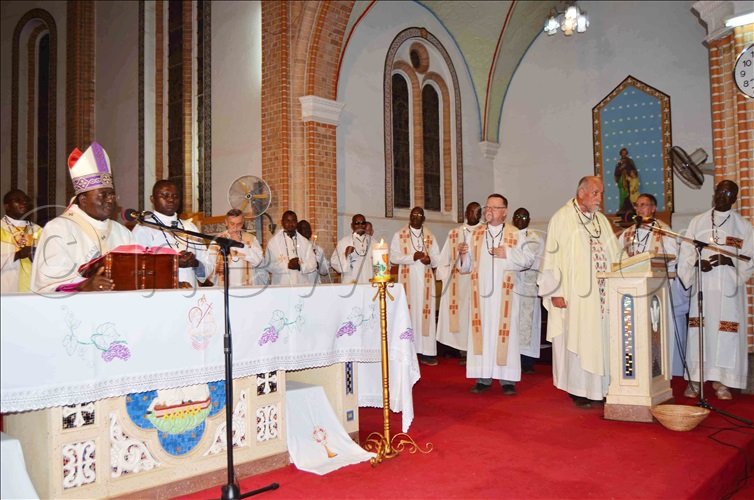
Photo by Mathias Mazinga
According to Gay Robert 1974, a bishop and by then a regional superior of the white father’s report that, the remains of Fr. Barbot and Bro. Amans were returned back by the late Emmanuel Cardinal Nsubuga. These reached Ugandan soil on 3rd march 1974. It was meant to be 2nd but according to Msgr. Kamya’s response to the Archbishop’s telegram, it would be impossible because on that same day, the president of Libya the late Col. Muammar Gaddafi was to visit Uganda. The archbishop successful return had to be organised for the next day which was 3rd march.
It was always the Archbishop’s prayer to bring all the remains of the first missionaries that is (Barbot, Amans, Livinhac, Girault and Lourdel) to Uganda in commemoration of their effort to spreading Christianity and as well to keep them in Namugongo shrine and not any other place.
Depending on the press release on 8th may 1974, by then the Archbishop of Kampala Emmanuel Nsubuga explained the importance of returning the remains to Uganda basing on the fact that they were the first catholic missionaries to Uganda. He affirmed it that it wasn’t political as president Idi Amin had stated it.
Father Simeon Lourdel, or Mapeera as he was affectionately known, is revered as a pioneer of Catholicism in Uganda and a symbol of missionary zeal and dedication. He is remembered for his selfless service and his instrumental role in laying the foundation for the Catholic Church in Uganda.
Read About
8 Must See Attractions in Uganda
Some of our religious packages
2 Days Uganda Martyrs Trail Namugongo Catholic Shrine Tour
3 Days smallest church itinerary in Uganda
3 Days Journey to Namugongo shrine
4 Days Uganda Spiritual Journey
5 Days Uganda Martyrs Pilgrimage

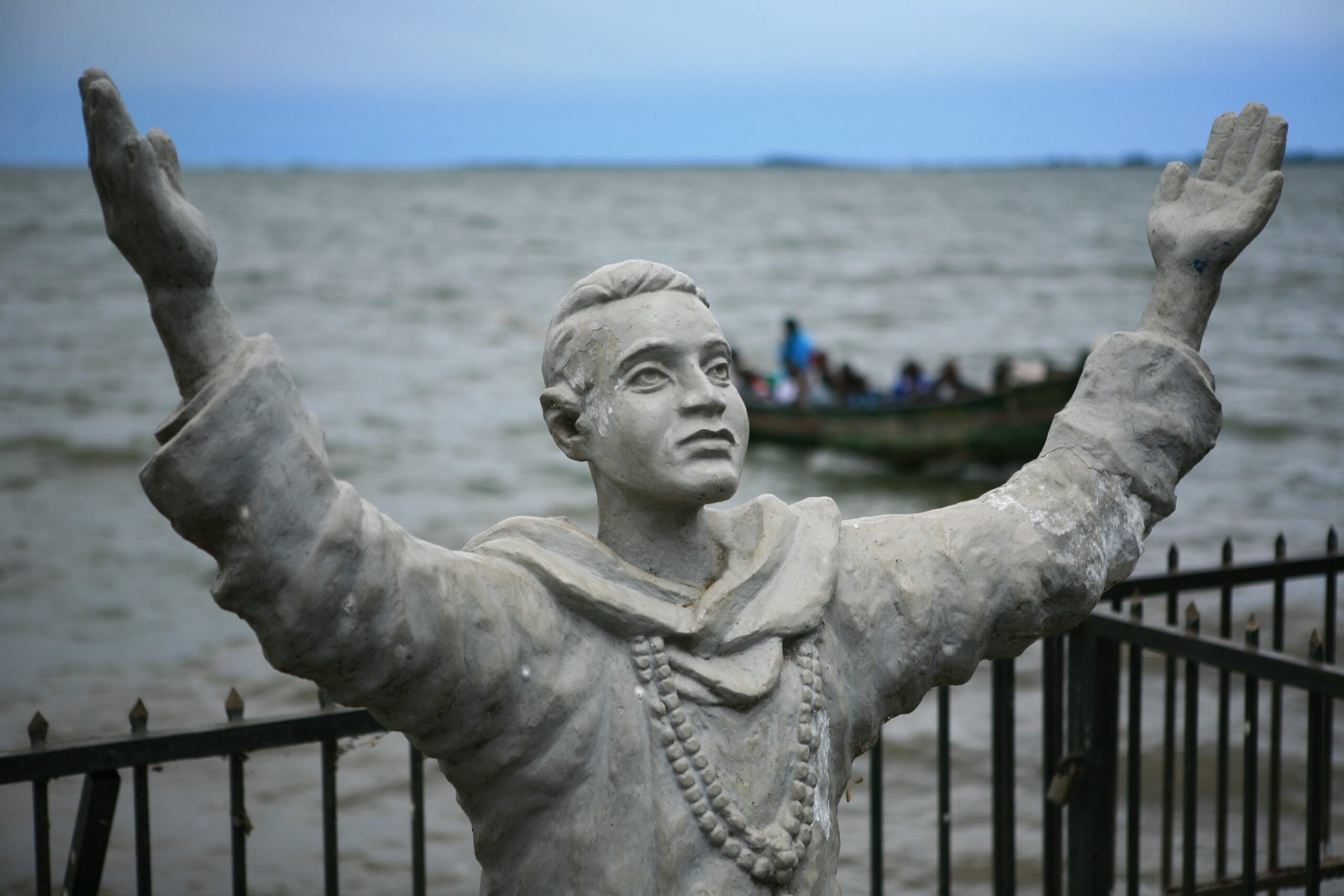
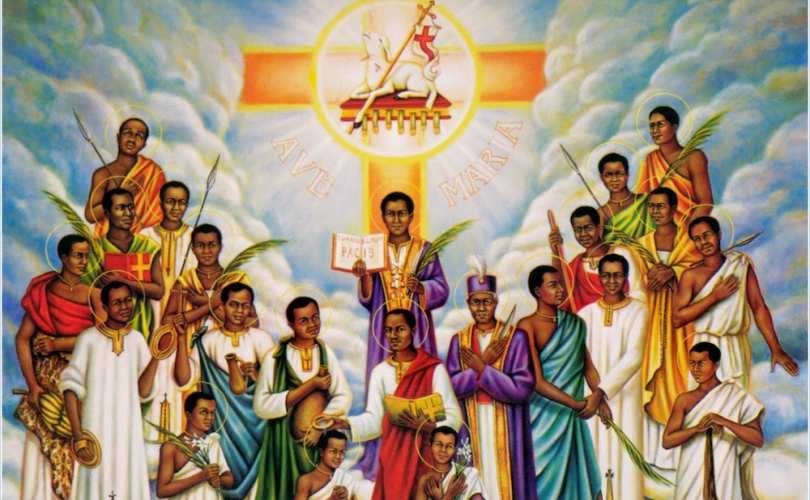
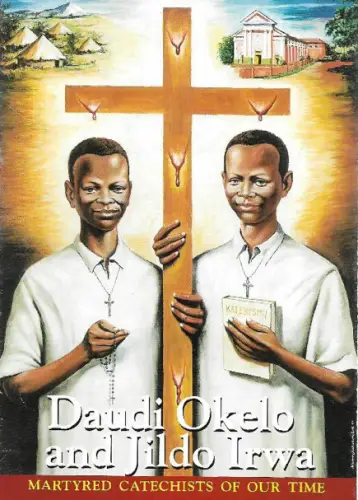
Leave a Reply